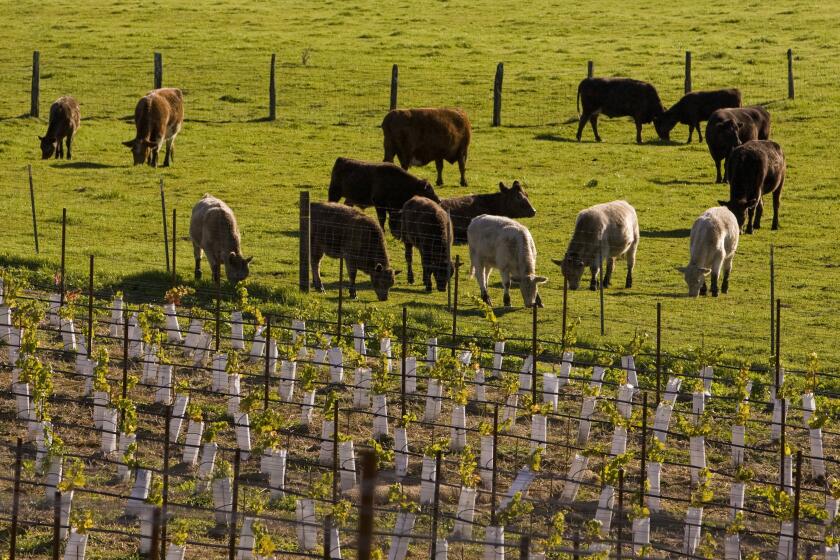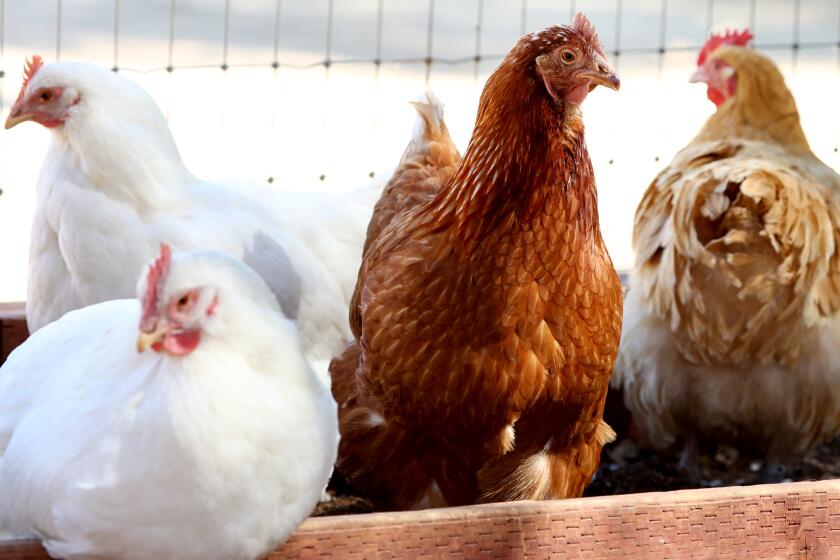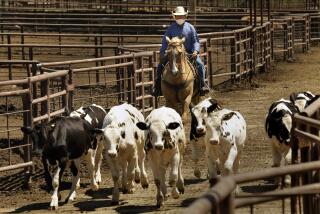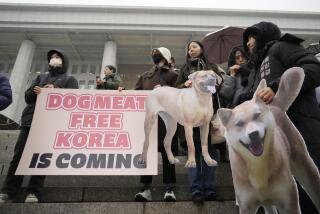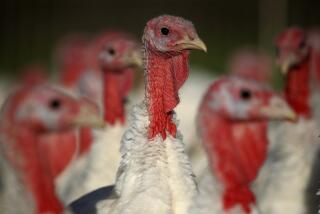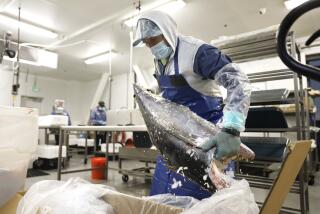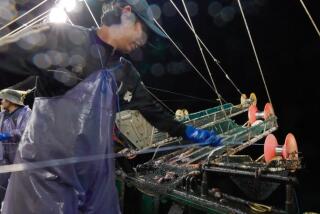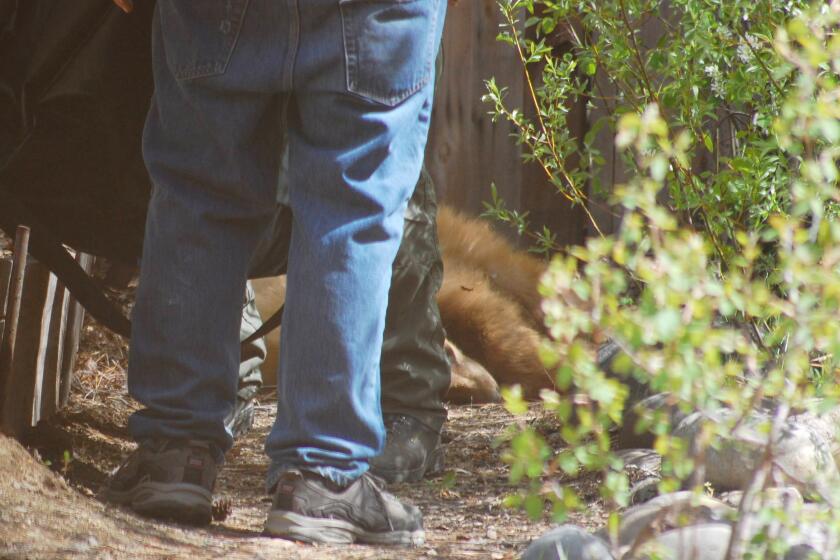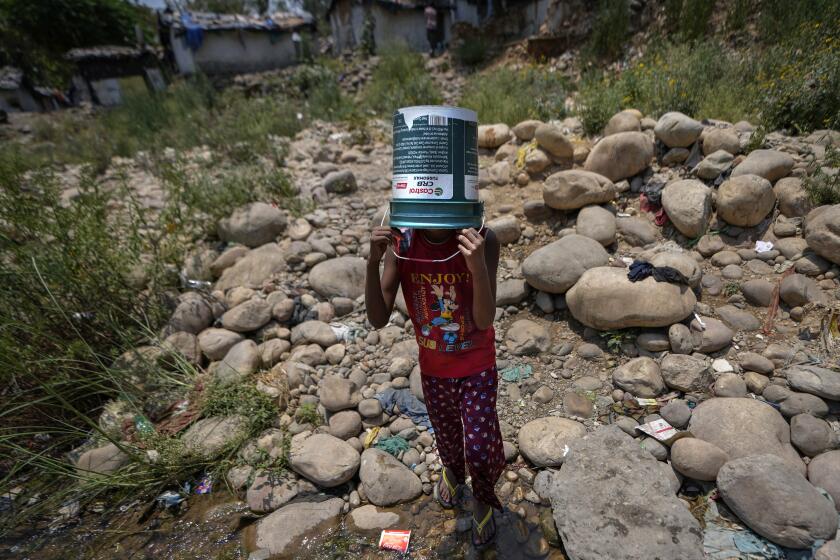Opinion: Florida just picked the wrong kind of meat to ban

Florida Gov. Ron DeSantis and Alabama Gov. Kay Ivey recently signed into law bans against cell-cultivated meat in their states. They apparently find meat grown in a lab rather than stripped from a factory-farmed animal so repellent that its production, distribution or sale ought to be a misdemeanor punishable with jail time. Indeed, when DeSantis signed his ban, he said he was “fighting back against the global elite’s plan to force the world to eat meat grown in a petri dish or bugs to achieve their authoritarian goals.”
Animal rights activists are promoting a ballot initiative that would ban factory farming in Sonoma County. Large farming interests are not happy.
You might expect such nonsense to be greeted with eye-rolling. Yet in a rare show of bipartisan support, Democratic Sen. John Fetterman of Pennsylvania has jumped on the bandwagon too. He spent the last week posting online that he backs a ban on cell-cultivated meat, and that the “beauty of democracy” is that some people can join the “pro-bio slop caucus,” whereas others can join him and DeSantis on the “pro-ribeye one.”
DeSantis, Ivey and Fetterman are wrong about cell-cultivated meat and about democracy. Cell-cultivated meat is one of several meat alternatives that has the potential to be part of a humane, healthful and environmentally sustainable future food system. And in the kind of democracy that our leaders claim to admire, you don’t go around banning what you don’t like, much less understand. New agricultural industries should be free to compete against the status quo. Talk of bans is akin to the buggy whip industry trying to ban cars in a fit of Luddite protectionism.
Companies are flocking to alt-protein central — California
Forget for a moment the horrific suffering that animals endure before they wind up as packaged bits in your grocery store. Just consider the environmental toll that it takes to feed the ribeye coalition. Raising cows and other animals for food consumes a huge amount of scarce land and water; an estimated 80% of agricultural land is used for animal grazing and animal feed production. It also produces a huge amount of waste, pollution and greenhouse gas emissions, making it a leading contributor to deforestation, biodiversity loss and climate change. This is the industry DeSantis, Ivey and Fetterman want to defend from disruption?
There is no reason to ban cell-cultivated meat at this early stage in its development. Far from it — there are only reasons to aggressively explore all options for building industries that can produce nutritious, delicious food while improving animal welfare, disease control and environmental protection. Governments should invest in research and development to see if we can develop better alternatives to the practice of breeding, raising and killing tens of billions of cows, pigs, chickens, turkeys, fish and other animals per year, often in cramped, toxic conditions that harm animals, workers and consumers alike.
Because of the growth and further intensification of animal production, humans inflict more suffering on animals today than they did in 1975.
If DeSantis, Ivey and Fetterman — and state officials in Kentucky, Tennessee and West Virginia who are reportedly considering bans — want to have a conversation about whether to ban certain kinds of meat production, then OK, we can do that. But it might not go the way they expect. In a capitalist liberal democracy like the U.S., the government is supposed to intervene in market activity only in particular circumstances — for instance, when market activity is causing massive and unnecessary harm to people without their consent. What happens when we apply that standard to different methods of meat production?
The production of cell-cultivated meat, plant-based meat and other such alternatives is nowhere near harmful enough to warrant a ban. Ironically, however, industrial animal agriculture is. It inflicts an enormous amount of harm on everyone whether we participate or not. The recent outbreak of avian flu in dairy herds is only one of countless dangerous externalities that plausibly warrant government intervention.
The list of fake meat — plant-based, cultured, fungi-based — is growing.
This is not to say that governments should, or could, ban industrial animal agriculture overnight. As with the phasing out of fossil fuels, the phasing out of industrial animal agriculture would require decades of work. Companies would need to scale up the production of meat alternatives, and governments would need to support this work through financial and regulatory policies. Governments would also need to make sure that everyone has access to food and income along the way — a “just transition” for consumers and workers.
We can say this much with confidence: If we do this work, then an eventual ban on industrial animal agriculture may well be possible. Regardless, we should definitely not ban cell-cultivated meat at this early stage.
C’mon DeSantis, Ivey and Fetterman: embrace good old American innovation. Join the coalition of people who want to keep making the food you claim to love, only without animal suffering, disease outbreaks and environmental destruction that make it unsustainable.
Arthur L. Caplan heads the division of medical ethics at NYU Grossman School of Medicine. Jeff Sebo is associate professor of environmental studies and affiliated professor of bioethics, medical ethics, philosophy and law at New York University. His most recent book is Saving Animals, Saving Ourselves.
More to Read
More to Read
More to Read
A cure for the common opinion
Get thought-provoking perspectives with our weekly newsletter.
You may occasionally receive promotional content from the Los Angeles Times.
